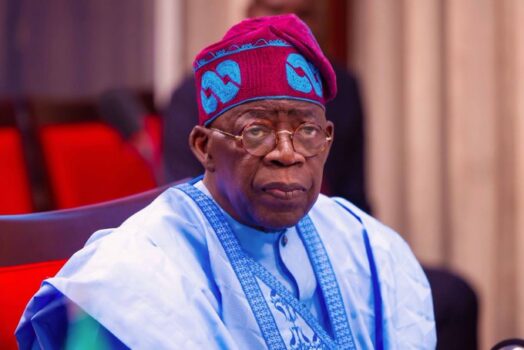 The Nigerian Presidency has downplayed the significance of investigative records concerning President Bola Ahmed Tinubu that a U.S. court has ordered the Federal Bureau of Investigation (FBI) and Drug Enforcement Administration (DEA) to release, describing the documents as neither new nor incriminating.
The Nigerian Presidency has downplayed the significance of investigative records concerning President Bola Ahmed Tinubu that a U.S. court has ordered the Federal Bureau of Investigation (FBI) and Drug Enforcement Administration (DEA) to release, describing the documents as neither new nor incriminating.
In a statement released yesterday, Presidential Adviser on Information and Strategy, Bayo Onanuga, emphasized that the documents in question have existed in the public domain for over 30 years and contain no indictment against President Tinubu.
“There is nothing new to be revealed,” Onanuga wrote on his verified X (formerly Twitter) account, @aonanuga1956. “The report by Agent Moss of the FBI and the DEA report have been in the public space for more than 30 years. The reports did not indict the Nigerian leader.”
Onanuga’s remarks followed widespread media coverage of a recent ruling by Judge Beryl Howell of the U.S. District Court for the District of Columbia. The judge ordered the FBI and DEA to release documents connected to a 1990s drug trafficking investigation that allegedly involved Tinubu and other individuals.
Judge Howell rejected the agencies’ use of the “Glomar response” — a legal tactic allowing agencies to neither confirm nor deny the existence of certain records — calling their justification “neither logical nor plausible.”
Babatunde Ogala (SAN), one of Tinubu’s legal representatives during the 2023 electoral tribunal hearings, also dismissed the reports as inconsequential. He stated that President Tinubu has traveled to the United States multiple times since 1994 without any restrictions, underscoring that the documents in question do not compromise his legal standing.
“There’s nothing new in this case that has not already been put in the public domain,” Ogala said.
The lawsuit prompting the court ruling was filed in June 2023 by U.S. transparency advocate Aaron Greenspan, founder of PlainSite.org. Greenspan had submitted 12 Freedom of Information Act (FOIA) requests to multiple agencies — including the FBI, DEA, IRS, and Department of State — seeking records related to an alleged heroin trafficking ring in the early 1990s involving Tinubu and others.
After the agencies refused to confirm or deny the existence of the records through Glomar responses, Greenspan filed a federal lawsuit. The Central Intelligence Agency (CIA) was later added as a defendant.
Court filings indicate that in 1993, Tinubu forfeited $460,000 to the U.S. government after authorities linked the funds to suspected narcotics proceeds. The forfeiture became a central issue in the 2023 Nigerian presidential election litigation, but the courts ultimately dismissed the challenge and upheld Tinubu’s election.
President Tinubu also sought to intervene in the U.S. FOIA case, citing concerns about his privacy and the confidentiality of documents related to tax and law enforcement matters.
While Judge Howell’s ruling lifts the Glomar restrictions on the FBI and DEA, it does not necessarily imply guilt. The Presidency has reaffirmed that Tinubu’s legal team is reviewing the implications of the judgment, reiterating that the records contain no new or damaging revelations.

FG Declares April 18 And 21 Public Holidays For Easter Celebrations
Mutfwang Bans Night Grazing, Restricts Motorcycles After Fresh Attacks
House Committee Summons Rivers State Sole Administrator For Interactive Session
Dangote Refinery Cuts Petrol Ex-Depot Price To ₦835 Per Litre